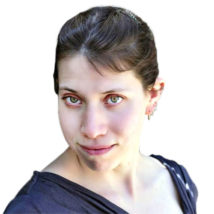
Bethany Brookshire was a longtime staff writer at Science News Explores and is the author of the book Pests: How Humans Create Animal Villains. She has a B.S. in biology and a B.A. in philosophy from The College of William and Mary, and a Ph.D. in physiology and pharmacology from Wake Forest University School of Medicine. She was a 2019-2020 Knight Science Journalism Fellow at MIT, the winner of the Society for Neuroscience Next Generation Award and the Three Quarks Daily Science Writing Award, among others.

All Stories by Bethany Brookshire
-
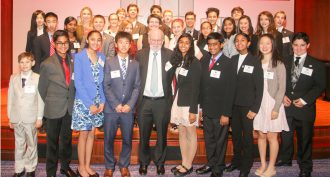 Science & Society
Science & SocietyBroadcom MASTERS awards honor science, invention and teamwork
Each year, 30 middle school science fair winners work together to show off their science knowledge and innovation skills.
-
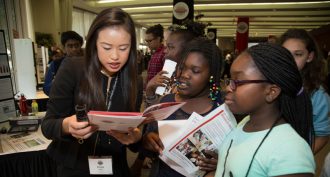 Environment
EnvironmentFattening maggots to create a designer food
Davia Allen wants to reduce food waste by feeding it to fly larvae — which can then serve as food for poultry, fish and people.
-

When science blew up in my face, I learned…
Everyone working on a science project sometimes fails. Listen to these Broadcom MASTERS finalists share what their failures taught them.
-
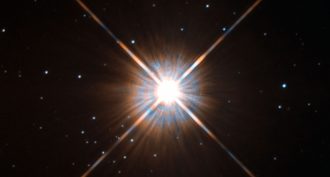
-
 Brain
BrainTeen brains may have an advantage — better learning
The teen brain is infamous for prizing rewards and encouraging risky behavior. But their reward-driven behavior may help those teens learn some things better than adults.
-
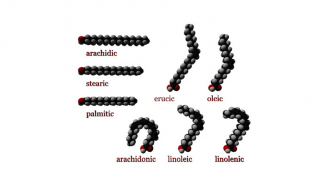 Chemistry
ChemistryScientists Say: Fatty acid
Fats are important, especially fatty acids. These molecules serve many purposes, but they are all constructed the same way.
-
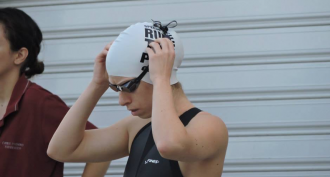 Science & Society
Science & SocietyWomen in science are living life by the numbers
These women show that math, physics and technology are definitely a girl thing.
-
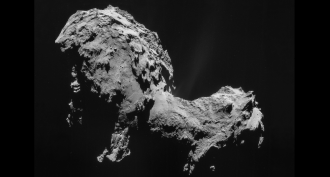 Space
SpaceScientists Say: Comet
Comets are small solar system objects. When they pass close to their sun, their melting gases and water give them a tail.
-
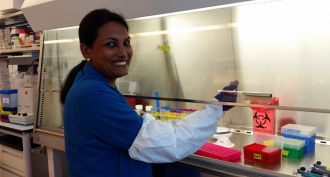 Brain
BrainThese scientists are getting inside your head
You brain might only weigh few pounds, but there’s a whole world in there. Meet the women in science who are digging into the mysteries of the mind.
-
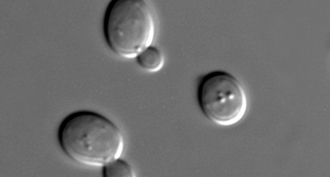 Life
LifeScientists Say: Autophagy
Cells can break down and recycle their parts for later use. This process — called autophagy — won a scientist a Nobel Prize in 2016.
-
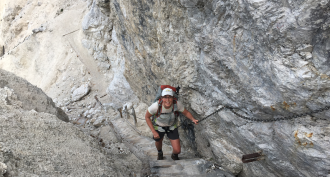 Science & Society
Science & SocietyWomen in science study earth and sky
These scientists rock. Meet scientists who study snowstorms, earthquakes, fossils and more.
-
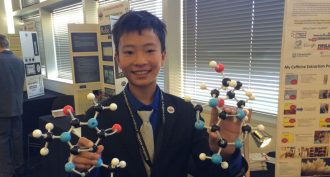
Bring kids to the Broadcom MASTERS with a mini grant
Get kids inspired to try their own science projects by bringing them to the Broadcom MASTERS project showcase.